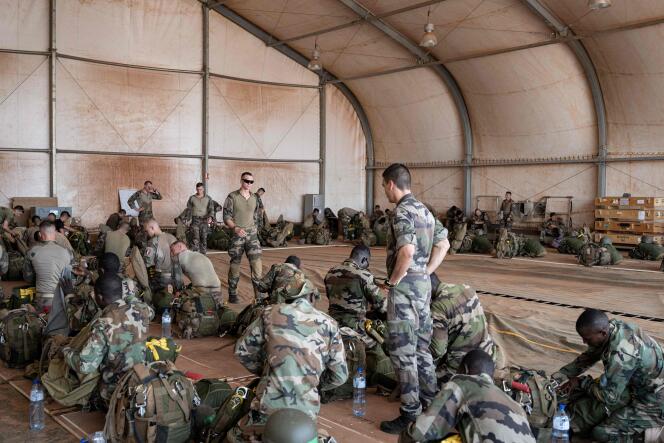


After two months of confrontation with the Niger junta, French President Emmanuel Macron's announcement on September 24 that some 1,500 French soldiers would be withdrawn from Niger is one of the hardest blows felt by the French army in the last 10 years. Despite warnings over the stability of Mohamed Bazoum's regime, Niger's president who was overthrown in a coup in July, few within the military establishment had foreseen that this rejection of France would be so swift, following the withdrawal from Mali in 2022 and Burkina Faso at the beginning of the year.
"This marks the turning of a page in history," said one former general, now working in the private sector, a few days ahead of the announcement of the French military's withdrawal. "I saw the end of the old world," said another dejected officer in late July, shortly after the Niger coup d'état, in reference to a book by former journalist and international affairs specialist Alexandre Adler, who had died a few days earlier. It was a rare moment of disarray within military circles. Seeing France's presence in Africa disappear was something they had previously hoped could be avoided.
The military establishment has long defended its attachment to Africa, with the government's backing, all in the name of security issues: the fight against terrorism, corruption, migrant smuggling and, generally speaking, against the creation of large lawless areas. With the end of Operation Barkhane in 2022, and with no chance of overcoming the threat of jihadism, these security objectives have turned into a concern to keep hold of an region of French influence, at a time when Russian ambitions are growing. But this stance, which was supposed to also see a shift from military to cultural and economic diplomacy, has upheld a kind of status quo with the continent.
In light of the widespread disaffection with French policy in Africa and its share of humiliations, voices within the defense community are starting to speak out behind the scenes against what was once taboo within the armed forces: the difficulty of abandoning the African continent for reasons that are less operational than organizational. In other words, the difficulty of giving up a rough but not overly exposed, French-speaking training ground that allows troops, bonuses and command posts to rotate, while also helping move soldiers up the career ladder.
The stakes have become higher in recent years, with fewer people signing up to join the armed forces, particularly the army – 700 positions were left vacant in 2021. Paradoxically, the pressure to maintain troops in Africa has also increased since the start of the war in Ukraine. The possible transfer of French forces to Europe is currently complicated by the fact that many countries on the eastern flank are already engaged in cooperation with other powers: Estonia with the UK, Lithuania with Germany, Poland and Romania with the USA.
You have 44.06% of this article left to read. The rest is for subscribers only.
